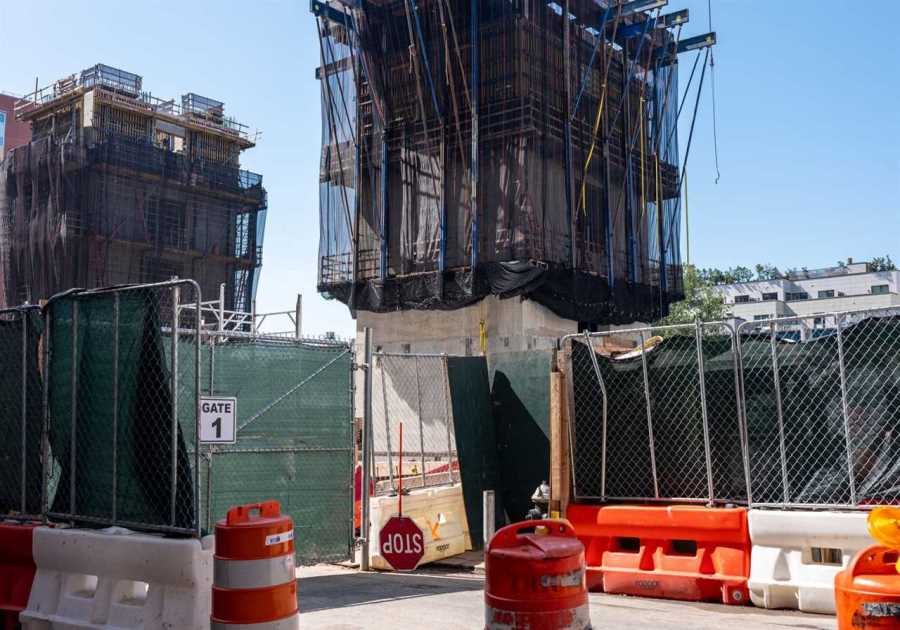Many people assume that dual-income couples are in the perfect position to marry sooner because they have more resources, more flexibility, and more shared stability. But in reality, an increasing number of couples with two full time incomes are choosing to postpone marriage far longer than previous generations. The reasons are more nuanced than fear of commitment or shifting cultural norms. For many modern couples, the hidden factor influencing this decision is financial strategy rather than romance. Understanding this trend reveals how money, independence, and long-term planning shape today’s relationships.
Rising Costs Are Shifting Priorities for Couples
One of the biggest pressures on two-income households is the rising cost of living, which forces many partners to reassess the financial timing of marriage. Housing costs have skyrocketed, and many couples prefer to prioritize saving for a home before hosting an expensive wedding. This financial reality makes long engagements more common. Couples often want to build a foundation before taking on the added expenses associated with marriage. The shift in focus from ceremony to stability changes how couples view the ideal timeline.
Financial Independence Is More Important Than Ever
Many couples with two incomes value personal financial independence, which leads them to delay merging finances or signing legal documents. While two incomes create stability, they also create strong individual identities and personal goals. Some partners want to pay down debt, build emergency funds, or reach specific career milestones before marrying. Delaying marriage gives them space to manage money independently without feeling rushed. The emphasis on independence strengthens their eventual partnership.
Employer Benefits Influence Relationship Decisions
Surprisingly, employer benefits play a major role in why some couples choose delaying marriage as a financial strategy. Some couples risk losing financial advantages after legally combining households. Health insurance premiums, income-based loan repayment plans, and tax brackets all shift after marriage. For some high earning couples, marriage can result in thousands of dollars of additional expenses each year. Delaying marriage becomes a strategic move to maintain better financial outcomes.
Student Debt Creates Unequal Pressure Between Partners
High levels of student debt often create complications within relationships where both partners work full time, especially when one partner owes significantly more. Marriage sometimes transfers legal or financial responsibility in ways couples want to avoid early on. They may choose to wait until debts are more manageable or until repayment plans become more favorable. This reduces financial stress and gives both partners breathing room. The delay helps preserve long term harmony.
Couples Want More Time to Build Investment Security
With rising economic uncertainty, many couples with two strong paychecks prefer to strengthen their financial future before marrying. They focus heavily on building investments, increasing retirement savings, or setting up passive income streams. Partners see marriage not as a starting point but as the next step after achieving financial readiness. This mindset makes financial growth more important than traditional timelines. The extra time allows for more stability once they do make the commitment.
Career Growth and Mobility Shape Relationship Timelines
Modern careers require frequent job changes and relocations, especially for ambitious partners in two-career households. This unpredictability makes marriage feel like an additional layer of complexity. Couples often delay tying the knot until both partners reach more stable positions or settle in long term locations. This approach helps them avoid difficult choices between career advancement and relationship plans. Delaying marriage becomes an act of long-term protection.
Cohabitation Makes Marriage Feel Less Urgent
Many modern couples with two incomes live together long before discussing marriage, which naturally reduces the urgency. Cohabitation offers emotional, financial, and logistical benefits that previous generations only gained through marriage. With shared bills, shared spaces, and shared routines, many couples already enjoy the practical advantages of married life. Because daily life feels stable, the legal ceremony becomes something to plan later rather than immediately. This comfort influences their timeline.
Couples Feel Pressure to Achieve a “Perfect” Wedding
The pressure to plan elaborate weddings is stronger than ever, especially among couples with comfortable, two-income lifestyles who feel capable of hosting high quality events. Social media raises expectations for venues, travel, attire, and guest experiences. These rising standards lead couples to consider delaying marriage while saving for the wedding they envision. The desire for financial readiness outweighs the urgency of legal marriage. The wait becomes a means of achieving a stress-free celebration.
Financial Transparency Takes Time to Build
Honesty about money is a major factor in long term relationship success, but it does not happen overnight. Partners in two-income relationships often need more time to share full financial histories, spending habits, and future goals. They may feel uncomfortable merging accounts or making joint investments too early. The additional time allows them to create trust and communication skills that will support married life. Delaying marriage becomes a way to strengthen long term compatibility.
Couples Want to Maintain Freedom Before Committing Legally
Many partners appreciate the flexibility that comes with life before marriage. These couples often enjoy travel, hobbies, and spontaneous choices that fit their lifestyle. Marriage adds both emotional and financial responsibilities that some couples choose to delay while they explore personal interests. This period of freedom strengthens the relationship rather than weakening it. The decision to wait often reflects maturity rather than hesitation.
The Modern Marriage Timeline Is All About Strategy
Today’s relationship trends show that dual-income couples delaying marriage are not doing so because they fear commitment but because they value smart financial planning. By waiting, they give themselves room to build savings, reduce debt, and create long term stability. This thoughtful approach ultimately strengthens their future marriage. The new timeline is rooted in practicality, not avoidance, and allows couples to enter marriage on solid ground.
Are you and your partner delaying marriage for strategic reasons? Share what shaped your timeline in the comments.
What to Read Next…
Is Marriage Without Kids Financially Riskier Than Divorce?
9 Relationship Challenges Only Childless Couples Confront Together
8 Ways Child-Free Couples Outpace Married-with-Kids on Financial Flexibility
7 Relationship Habits That Strengthen Financial Partnerships
The Hidden Advantages of a Child-Free Marriage No One Talks About
------------Read More
By: Catherine Reed
Title: The Secret Reason So Many Dual-Income Couples Are Delaying Marriage
Sourced From: www.dinksfinance.com/2025/11/the-secret-reason-so-many-dual-income-couples-are-delaying-marriage/
Published Date: Wed, 26 Nov 2025 12:00:01 +0000
.png)





